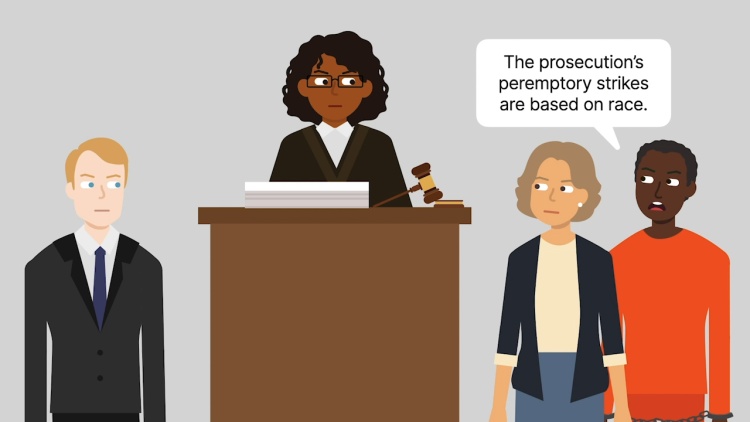Miller-El v. Dretke
United States Supreme Court
545 U.S. 231, 125 S.Ct. 2317, 162 L.Ed.2d 196 (2005)
- Written by Shelby Crawford, JD
Facts
Miller-El was tried for capital murder. During jury selection, Miller-El objected to the prosecution’s use of peremptory strikes to dismiss ten black prospective jurors. He argued the strikes were impermissibly based on race and requested that a new jury be selected. The trial court denied his request and held that the evidence put forth was not enough to grant Miller-El relief under the current standard because he did not show systematic discrimination. Miller-El was convicted and sentenced to death. While his case was being appealed, the standard for granting relief for discrimination during jury selection was changed by the decision in Batson v. Kentucky, 476 U.S. 79 (1986). Under Batson, the proof of systematic discrimination requirement was replaced by a requirement of proof that the prosecutor was racially biased during jury selection. In light of this change, the appellate court remanded Miller-El’s case to the trial court. The trial court held that Miller-El did not establish that the prosecutor used peremptory strikes to dismiss jurors based on race because the prosecutor gave acceptable race-neutral reasons for the strikes. The appellate court affirmed that judgment. Miller-El petitioned for habeas corpus relief in federal district court but was denied. The appellate court denied a certificate of appealability. The Supreme Court granted certiorari and reversed the appellate court to allow an appeal. The appellate court granted a certificate of appealability but rejected Miller-El’s claim that the prosecutor was racially biased during jury selection. The Supreme Court granted certiorari again.
Rule of Law
Issue
Holding and Reasoning (Souter, J.)
Concurrence (Breyer, J.)
Dissent (Thomas, J.)
What to do next…
Here's why 907,000 law students have relied on our case briefs:
- Written by law professors and practitioners, not other law students. 47,100 briefs, keyed to 996 casebooks. Top-notch customer support.
- The right amount of information, includes the facts, issues, rule of law, holding and reasoning, and any concurrences and dissents.
- Access in your classes, works on your mobile and tablet. Massive library of related video lessons and high quality multiple-choice questions.
- Easy to use, uniform format for every case brief. Written in plain English, not in legalese. Our briefs summarize and simplify; they don’t just repeat the court’s language.





